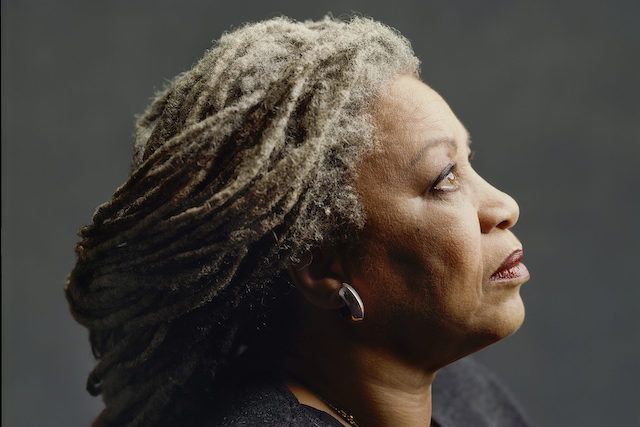Holly Genovese is a Ph.D student in American Studies at the University of Texas at Austin. She is also completing graduate portfolio programs in African and African Diaspora studies, as well as Women's and Gender Studies. Her writing has been published in Teen Vogue, The Washington Post, Electric Literature, The La Review of Books, Literary Hub, Hello Giggles, and many other places.
View All posts by Holly Genovese
The internet—at least the book-adjacent internet—is mourning Toni Morrison, particularly through powerful quotations. Here are some I found striking as I grieve (and settle in to read all of the Morrison I have not yet finished). I hope they might help you mourn, inspire you, or engage you in her work if you haven’t read it already. She wrote (or spoke) about love, racism, politics, and the meaning of life. Radically, she considered herself to both be working within the literary canon while also making political art.
Here is just a selection of her quotes.
- On the meaning of life (are you crying yet?): “We die. That may be the meaning of life. But we do language. That may be the measure of our lives.”
- On being asked to write for white people: “And I don’t know why I should be asked to explain your life to you…If I tried to write a universal novel, it would be water.”
“And I am all the things I have ever loved: scuppernong wine, cool baptisms in silent water, dream books and number playing.”
“You are Your Best Thing.”
On dealing with anger: “I get angry about things and then go on and work.”
On how we teach Black literature: “Black literature is taught as sociology, as tolerance, not as a serious, rigorous art form.”
Some hard truths on love: “You do not deserve love regardless of the suffering you have endured. You do not deserve love because somebody did you wrong. You do not deserve love just because you want it. You can only earn—by practice and careful contemplations—the right to express it and you have to learn how to accept it.”
Oof this is good. Put on that Ruby Woo: “A dream is just a nightmare with lipstick.”
“Oppressive language does more than represent violence; it is violence; does more than represent the limits of knowledge; it limits knowledge.”
On art and politics: “I think all good art is political. None of the best writing, the best thoughts have been anything other than that.”
Similarly, an engagement of books: “Books are a form of political action. Books are knowledge. Books are reflection. Books change your mind.”
On the experience of writing as a Black woman: “Being a black woman writer is not a shallow place but a rich place to write from. It doesn’t limit my imagination; it expands it. It’s richer than being a white male writer because I know more and I’ve experienced more.











